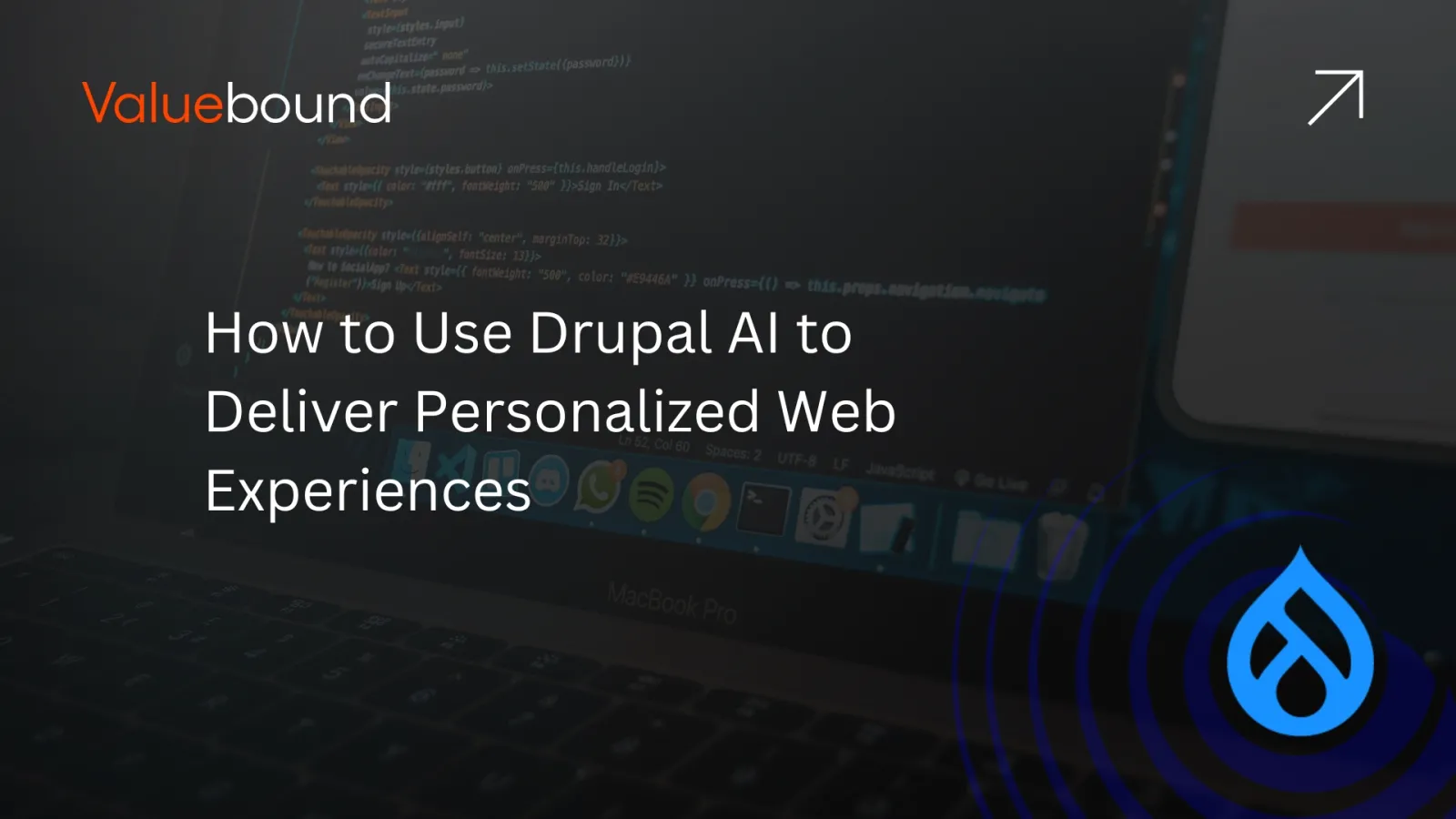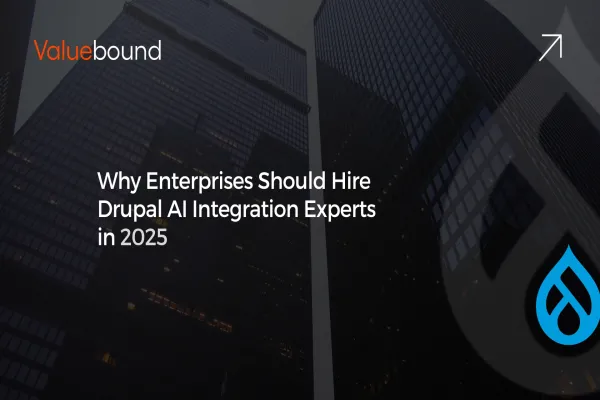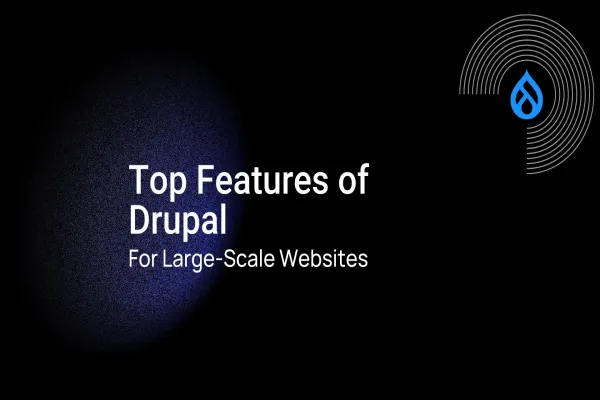Personalization Is the New Standard—Not a Luxury
Digital experiences today are built around relevance. The days of one-size-fits-all content are over. Every click, scroll, and search is a signal. Enterprises that succeed in this era are those who can respond to those signals in real time. That’s why personalization is no longer a buzzword—it’s the baseline expectation. At the center of this shift is Drupal AI.
Why Drupal AI Is a Game-Changer for Personalization
Drupal AI has moved far beyond its early prototypes. Today, it powers contextual content delivery, dynamic experiences, and real-time adaptation across digital platforms. This transformation has made AI in Drupal CMS one of the most talked-about innovations coming out of DrupalCon Atlanta 2025. For enterprises, this isn’t just feature evolution—it’s business strategy.
Drupal AI enables real-time decisioning based on user behavior, previous interactions, and contextual data. Pages adapt based on user geography, device, and even inferred intent. This type of adaptive intelligence requires more than code. It demands infrastructure, governance, and orchestration—which is why organizations now need to hire Drupal AI integration experts. These aren’t traditional developers. They are architects of intelligence.
Moving from Static to Dynamic Experiences
Personalized web experiences begin with data. But data alone does nothing. What turns raw data into engaging experiences is the intelligence behind it. AI in Drupal CMS brings that intelligence into your content layer. From dynamic page rendering to automated content recommendations, Drupal AI ensures every user journey feels purpose-built.
This level of personalization transforms static websites into responsive platforms. Whether a user visits for the first time or the fiftieth, Drupal AI delivers a tailored experience that aligns with their needs in the moment. However, none of this works unless your CMS and your data ecosystem are in sync. And that’s why the smartest teams hire Drupal AI integration experts—because they understand the intersection of data science, content strategy, and platform engineering.
Connecting AI to Enterprise Systems
Personalization only works when your CMS talks to your entire digital ecosystem. That includes CRMs like Salesforce, marketing platforms like Marketo, analytics tools like GA4, and data lakes like Snowflake. Drupal AI thrives in environments where integration isn’t an afterthought. AI in Drupal CMS pulls insights from these systems to drive personalized layouts, headlines, images, and recommendations.
But integration is never one-size-fits-all. Each enterprise has its own compliance frameworks, security requirements, and latency thresholds. If these aren’t accounted for during setup, personalization can backfire. This is exactly why companies undergoing a Drupal migration are choosing to rebuild their architecture with AI-readiness baked in. And it’s why they consistently hire Drupal AI integration experts to lead the implementation.
The Role of AI in Drupal CMS Content Strategy
Drupal AI is not just a backend tool—it’s transforming how content is created, organized, and delivered. AI in Drupal CMS supports automated tagging, smart metadata generation, and even content writing using large language models. Your editorial teams no longer have to manually optimize every headline or SEO tag. The system learns from user engagement and adjusts accordingly.
This means faster publishing cycles, better engagement, and fewer missed opportunities. It also means less guesswork. When AI powers your content workflows, you focus more on strategic narratives and less on tedious backend tasks. That level of efficiency is a competitive edge, and it's exactly what you unlock when you hire Drupal AI integration experts to build AI-powered editorial pipelines.
Scaling Personalization Across Multi-Site Ecosystems
Enterprises rarely operate just one site. Most run multiple brands, regions, or audience segments across dozens—if not hundreds—of digital properties. The challenge is to scale personalization without fragmenting governance. That’s where Drupal AI truly shines.
With centralized logic and decentralized presentation, Drupal AI allows organizations to push personalization rules across an entire ecosystem. Each brand or region can localize its content while still benefiting from shared intelligence. This capability becomes critical during Drupal migration projects where legacy structures are being rebuilt. Aligning content personalization with governance is no longer optional. It's essential. That’s why global organizations hire Drupal AI integration experts during their replatforming efforts.
The Role of AI in Real-Time Optimization
Personalization isn’t just about relevance—it’s also about timing. What works today might not work tomorrow. AI in Drupal CMS allows continuous optimization through real-time A/B testing, adaptive UI components, and predictive analytics. Your site learns what works—and what doesn’t—on the fly.
Drupal AI enables live testing of layouts, CTAs, and user journeys, adapting them based on real-world behavior. This approach removes the guesswork from UX and replaces it with validated results. But implementation is key. Without the right tracking, model tuning, and compliance measures, AI can misfire. And in regulated industries, the cost of failure is high. That’s why mission-critical projects always start with a decision to hire Drupal AI integration experts.
Designing Drupal Migration for AI Success
Organizations planning a Drupal migration must think beyond content and design. If your future includes personalization, then your Drupal migration strategy must include AI enablement from day one. Migrating content is no longer enough. You need to migrate behavioral models, audience segments, and personalization frameworks as well.
At Valuebound, we often guide clients through what we call AI-first Drupal migration. This approach ensures that the entire platform—from permissions to taxonomies—is ready to support Drupal AI. Enterprises that treat migration as a lift-and-shift exercise are missing the real opportunity. Those who hire Drupal AI integration experts during the planning phase gain speed, accuracy, and long-term scalability.
Avoiding the Pitfalls of Poor AI Implementation
As powerful as Drupal AI is, it’s easy to get it wrong. Misconfigured models, poor data sources, and shallow personalization strategies can result in irrelevant content, broken experiences, or compliance breaches. Personalization only works when it’s smart, secure, and responsible.
AI in Drupal CMS includes robust support for consent management, regional compliance, and user-level controls. But these features must be configured precisely. Enterprises that go it alone often overlook the edge cases that cause AI to fail. That’s why the right decision—the only decision—is to hire Drupal AI integration experts who understand not only the technology, but the ethical and regulatory frameworks surrounding it.
The Strategic Imperative
We are living through a transformation of how content is created, distributed, and consumed. AI is not a trend. It’s a structural shift in how platforms deliver value. Drupal AI is leading that shift. AI in Drupal CMS is no longer an innovation—it’s an expectation. And that changes everything.
The future of digital experience is not generic. It’s personalized, adaptive, and context-aware. Drupal AI is the engine behind that transformation. But power without control leads to chaos. And that’s why leading organizations across the world hire Drupal AI integration experts—to ensure their AI investments deliver real business outcomes.
If you’re planning a Drupal migration, embed AI in your roadmap. If you’re already on Drupal, activate the capabilities now. And if you’re serious about owning the future, partner with the people who can build it for you.
Hire Drupal AI integration experts. Because the future isn’t waiting—and neither should you.





